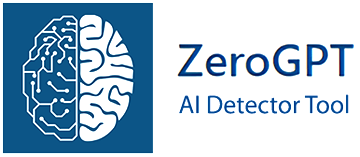The Effectiveness of Incubator Humidity Education on Nurse's Knowledge, Attitude, and Skills in Perinatology Room
DOI:
https://doi.org/10.34012/jukep.v7i2.5027Keywords:
attitude, knowledge, incubator humidity, skillsAbstract
Newborns, especially premature infants, are at high risk of ineffective thermoregulation due to their less complex skin structure. Impaired thermoregulation experienced by premature infants can lead to hypothermia. Premature infants who experience hypothermia can cause complications that have the potential to cause disability and death. One of the efforts to prevent hypothermia is to place premature infants in an incubator that gives moisture so that moisture regulation is needed to help regulate the baby's temperature, especially in premature infants who experience ineffective thermoregulation. Humidity regulation is required for the incubator to prevent fluid loss through evaporation. This study aims to determine the effectiveness of providing incubator humidity education on nurses' knowledge, attitudes, and skills in the Perinatology room. The research design used a pre-experimental group without control with an accidental sampling technique; namely, there was a pre-test before and a post-test after treatment. Thus, the treatment results can be more accurate because they can be compared with the situation before treatment. This study involved 37 respondents in the perinatology room in one of the state hospitals using pre-and post-test questionnaires conducted from April to May 2022. The results showed that there were significant differences before and after education on knowledge (p=0.001), attitudes (p=0.001), and skills (p=0.001). The results of this study can used as a reference in developing standard procedures for incubator humidity to prevent ineffective thermoregulation in premature infants through cognitive improvement of nurses about incubators.
Downloads
Published
How to Cite
Issue
Section
License
Copyright (c) 2024 Fransiska Ompusunggu, Yeni Rustina, Defi Efendi

This work is licensed under a Creative Commons Attribution 4.0 International License.
Authors who publish their manuscripts through the Journal of Keperawatan Priority agree to the following:
- Copyright to the manuscripts of scientific papers in this Journal is held by the author.
- The author surrenders the rights when first publishing the manuscript of his scientific work and simultaneously the author grants permission / license by referring to the Creative Commons Attribution 4.0 International License to other parties to distribute his scientific work while still giving credit to the author and the Journal of Journal Keperawatan Priority as the first publication medium for the work.
- Matters relating to the non-exclusivity of the distribution of the Journal that publishes the author's scientific work can be agreed separately (for example: requests to place the work in the library of an institution or publish it as a book) with the author as one of the parties to the agreement and with credit to sJournal ofJournal Keperawatan Priority as the first publication medium for the work in question.
- Authors can and are expected to publish their work online (e.g. in a Repository or on their Organization's/Institution's website) before and during the manuscript submission process, as such efforts can increase citation exchange earlier and with a wider scope.


















